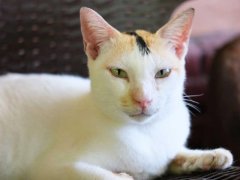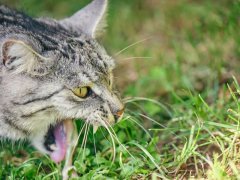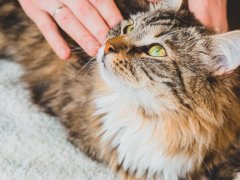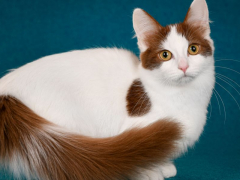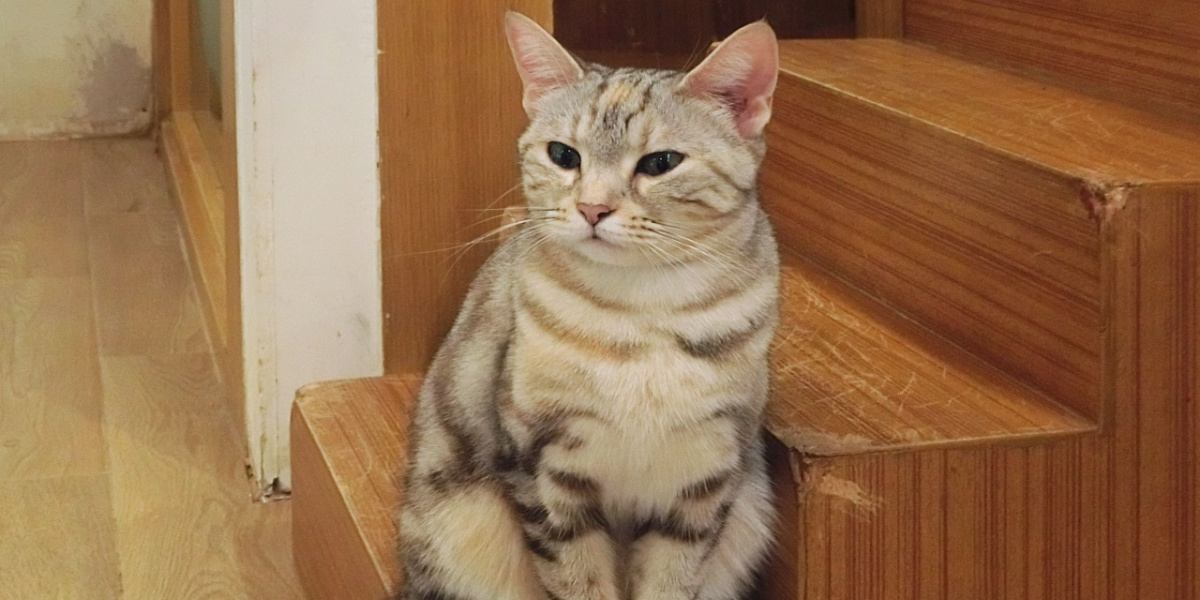
Some cats are loud and vocal, while other cats are quiet and timid. Every cat is different, and that’s perfectly ok. But what if your cat doesn’t ever meow? Is that normal? Well, it depends.
If your cat isn’t meowing, this may be down to their personality or breed, or it could be due to a medical condition. In this article, we’ll discuss what could cause a lack of meowing.
Not Meowing – Now Or Never?
First of all, we need to know—is it a new or old problem that you’ve noticed? Has your cat always been quiet, or did they used to meow and now suddenly don’t? This is important to know before we start discussing causes.
If it’s a new problem, and your cat used to meow, it could indicate an illness. In this case, you’d need to visit a veterinarian to have your cat examined and checked for underlying disease.
However, if your cat has been like this for as long as you can remember, then it isn’t an urgent issue. In fact, some pet owners have never heard their cat meow!
Why Have I Never Heard My Cat Meow?
If you’ve never heard your cat meow, please don’t be alarmed. This doesn’t mean that anything is necessarily wrong. Some cats are naturally more quiet and don’t feel the need to vocalize. Maybe they purr or chirrup instead? There are several types of cat vocalizations and meowing might not be in their preferred vocabulary.
Either way, if your cat doesn’t meow and has been like this since you can remember, don’t worry. It’s likely due to their personality and they’re just less vocal than other cats. If they seem happy and healthy otherwise there’s no need to worry about their lack of meowing.
My Cat Used To Meow And Now Doesn’t
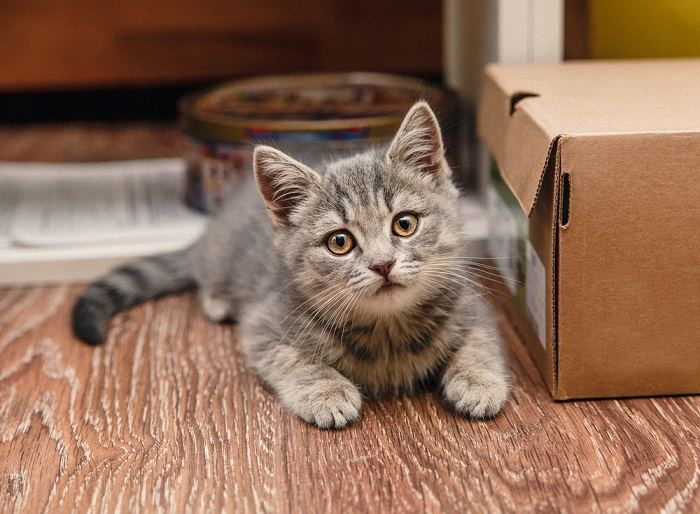
Like any sudden change, no longer meowing can be a sign of illness.
If your cat used to meow and now suddenly doesn’t, then there could be an underlying medical problem. Or you might notice that they’re still meowing but the meow sounds different. Almost as if their voice has changed. When investigating this issue, it’s important to note if your cat is showing other symptoms such as (but not limited to);
- Hoarse meowing
- Reduced appetite
- Coughing
- Sneezing
- Discharge from their eyes or nose
- Increased drinking
- Weight loss
- Lethargy
There are many conditions that could suddenly stop your cat from meowing or change the sound of their meow. We’ll discuss these further now.
Reasons Why Your Cat Has Suddenly Stopped Meowing
1. Stress
If your cat is suddenly quiet and not vocalizing as much, stress could be causing it. Stress can hugely affect cat behavior. Stress can cause certain cats to become withdrawn and quiet. They might not interact with their owners as much, and they’re less likely to try and seek attention by vocalizing.
Stressors include anything like a new baby in the house, new cat, house move, or even a person visiting for a few days. Cats particularly don’t like if their litter boxes, beds, and other special items are moved around, and this can stress them out a lot.
If your cat isn’t meowing anymore, check for anything that could be causing them stress. For example, if you notice your cat and a new cat in the household fighting or blocking each other’s paths, then you know that there’s some inter-cat conflict going on. This is a very possible cause of stress and could be the issue.
2. Upper Respiratory Infection Or Virus
Upper respiratory tract infections (URI) or viruses (most commonly cat flu – herpesvirus and calicivirus) can cause a lot of inflammation in the upper respiratory tract. This can cause your cat’s meow to change (become hoarse) or they might stop meowing altogether and lose their voice. You’ll likely notice other symptoms such as; sneezing, eye or nasal discharge (runny nose), and some lethargy.
3. Laryngeal Issues
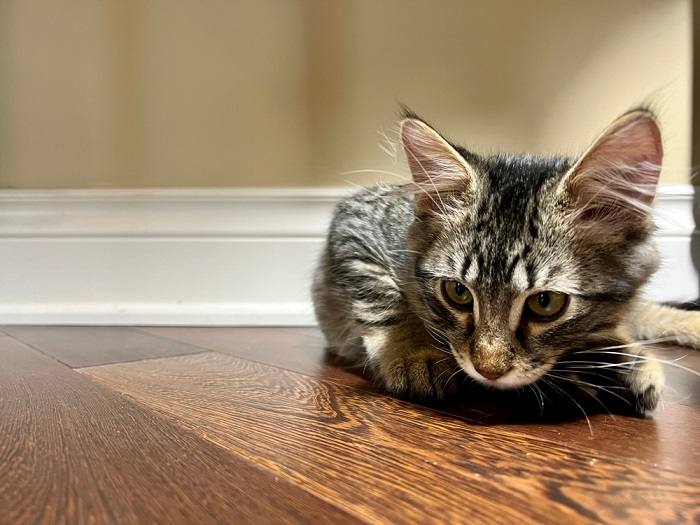
Issues affecting the larynx and windpipe can cause your cat to stop meowing. Your cat’s voice may also change, turning hoarse and rough.
The larynx is opening to the trachea/windpipe in cats and it prevents aspiration of food into the lungs. It’s also known as the cat’s voice box. If the larynx isn’t working properly, you might hear hoarse meows from your cat or they might not be meowing at all.
The larynx can have issues such as inflammation (laryngitis), laryngeal paralysis, and cancer. The first cause (inflammation) is by far the most common cause of laryngeal issues in cats that I see in practice. Thankfully, paralysis and cancer are less common.
4. Cancer
Unfortunately, cancer is on this list, but thankfully, it’s a less common cause. Cancer can manifest in many ways, including tumors of the upper respiratory tract. Any growths or masses in this area can change the sound of our cat’s meow and even cause them to stop meowing entirely. This cause would be more likely in an older cat that has suddenly stopped meowing.
5. Lethargy
If your cat has suddenly stopped meowing and is quieter in general, it could have a health problem making them feel unwell.
Cats that are lethargic and feeling unwell, may be less inclined to vocalize. They could have underlying issues such as; chronic kidney disease, diabetes, or hyperthyroidism (an overactive thyroid).
Things You Can Do At Home
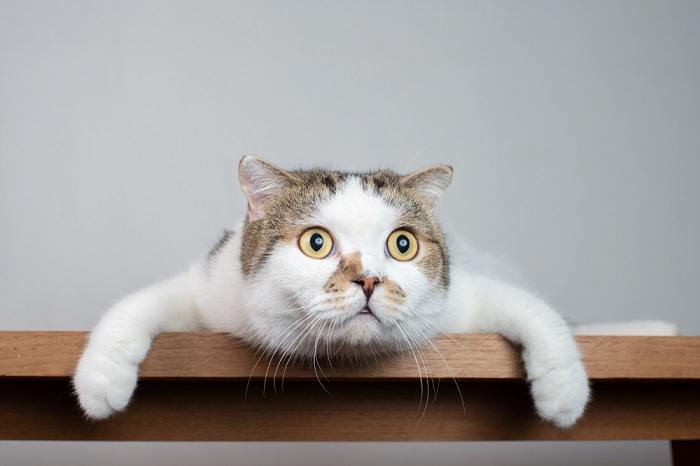
If you’ve noticed that your cat has suddenly stopped meowing, there are a few things you can do at home to help.
If your cat has suddenly stopped meowing there are a few things that we cat owners can do at home. Firstly, monitor for other symptoms such as; decreased appetite, nasal discharge, ocular discharge, sneezing, increased drinking, or lethargy.
If your cat is displaying these symptoms, it could mean that they’re unwell and need veterinary treatment so it’s important to know.
Stress may make your cat quieter than usual and even stop meowing. If you think your cat is stressed try to find the cause of the stress and make changes in the house. For example, if a new cat in the house is the cause of the stress make sure that there are enough resources for each cat.
Resources include beds, hiding areas, litter boxes, food and water stations, and scratching posts. Plugging in a synthetic pheromone (Feliway) diffuser will also help to decrease anxiety.
When Should You Visit Your Vet?
Cats that are happy and healthy and have never meowed don’t need any treatment. Some cats are naturally quieter and less vocal than others.
However, if your cat has suddenly stopped meowing you should visit your veterinarian. They’ll need to examine your cat and may do some blood and urine testing. Diagnostic imaging (x-rays, CT) may also need to be performed to rule out growths.
Also Read: 7 Common Cat Vocalizations And What They Mean
